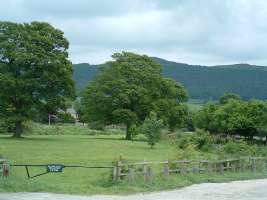
The meaning of the name Gargrave
(Etymology is the study of the meaning of names).
For example the name Skipton is the joining of Skip to Ton, Ton being an old word for town and Skip being an old word for sheep. Skiptons origins have always included an animal market.
Anyway I digress. This page is about the origins of the village name, the etymology of Gargrave or the meaning of the name Gargrave.
The research for this article is not original to me, I am quoting from: The History Of Gargrave by Harry M Gill. The History of Gargrave is a collection of information from many sources and an invaluable aid to anyone interested in the history of Gargrave.
What is the Etymology of Gargrave?
It’s not simple, there is no definitive answer to this question, sadly there is no evidence to support the story we told each other a kids that Gargrave was the place where the giant Gar was buried. Even though the simplicity of the myth fitted in to a neat niche in the brain.
To start with there are multiple references to the origins of the word Gargrave:
- The doomsday book references the village by two names: Geregrave and Gheregrave
- Earlier medieval records refer to the village as Geyrgrave and Gayrgrave.
There are references before that that go back to Scandinavian origins and before that to ancient English.
The name Gargrave appears to be a combination of Gar and Grave.
So far so good. Here’s were it gets a bit complicated.
The origin of Gar could be the contraction of the name of person: Geir for example Geirmundi or Geirlaugh. In this case the Grave probably started out as Groef which means a grave, trench or a pit. Which would make the village meaning the strip of land runled by Geirmundi or Geirlaugh.
The origin of the word Gar could be from the old English word Gara which translates as a three cornered strip of land.
A further reference cited by Harry M Gill is a book by RW Morris called Yorkshire by Place Names. This appears to bring the preceding possibilities together. This takes the view that the first part comes from GARA which is the old word for Gore which means a triangular piece of land left after ploughing. The second part coming from the word Graf which means a grave or copse.
As we peruse the information collected by Harry M Gill some things become obvious immediately from the confusion about the name origins. We have at play old Scandinavian references, and they did inhabit the area. Also pre-dating the Scandinavians were of course the ancient English. Neither tongues form part of our general understanding (well not mine anyway).
Consulting the website Yorkshire England about the etymology of Gargrave I get the result:
Gara’s Grove or the Grove belonging to Gara.
Although this is shorter and fit’s a common pattern, it’s debatable how well it fits
the history uncovered by Harry Gill.
Sources:
The History Of Gargrave by Harry M Gill. (1988 PAVIC Publications)
Website: www.yorkshire-england.co.uk/PlaceNameMeaningsEtoJ.html
